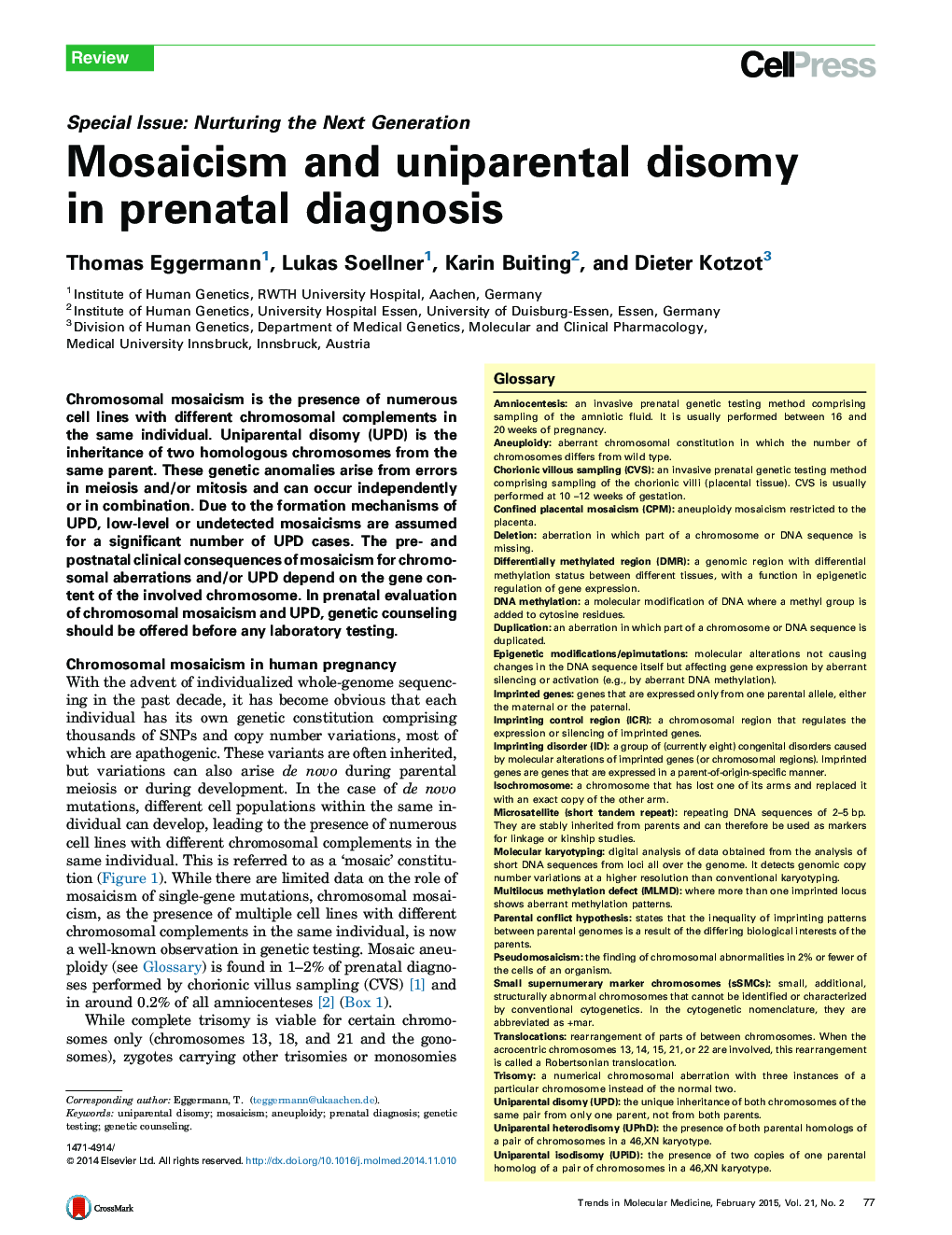| Article ID | Journal | Published Year | Pages | File Type |
|---|---|---|---|---|
| 2838448 | Trends in Molecular Medicine | 2015 | 11 Pages |
•Chromosomal mosaicism is a common finding in prenatal diagnosis.•Chromosomal mosaicism can be associated with UPD.•UPD can result in unbalanced expression of imprinted genes.•UPD can result in reduction to homozygosity for a recessive mutation.•Prediction of the phenotype in prenatally detected mosaicism and UPD is difficult.
Chromosomal mosaicism is the presence of numerous cell lines with different chromosomal complements in the same individual. Uniparental disomy (UPD) is the inheritance of two homologous chromosomes from the same parent. These genetic anomalies arise from errors in meiosis and/or mitosis and can occur independently or in combination. Due to the formation mechanisms of UPD, low-level or undetected mosaicisms are assumed for a significant number of UPD cases. The pre- and postnatal clinical consequences of mosaicism for chromosomal aberrations and/or UPD depend on the gene content of the involved chromosome. In prenatal evaluation of chromosomal mosaicism and UPD, genetic counseling should be offered before any laboratory testing.
